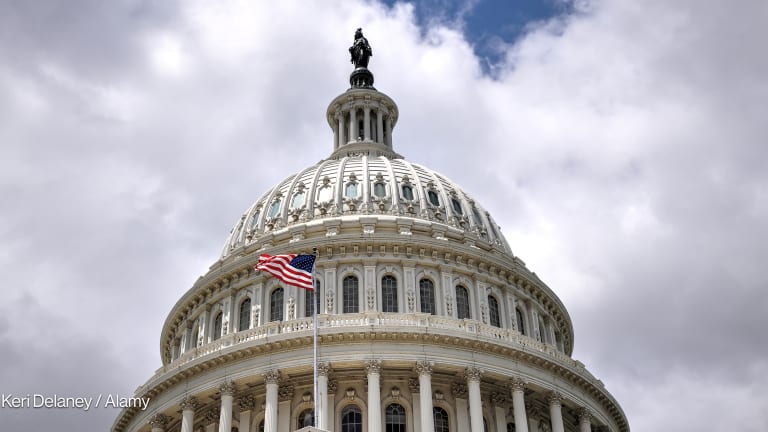
WASHINGTON — The Senate appropriations committee unanimously approved a foreign aid funding bill that contains limited budget cuts, including amendments to both repeal the Mexico City policy — the so-called “global gag rule” — and provide $10 million in climate change-related funding. The gag rule repeal is still likely to face significant opposition in the House.
The Senate bill allocates roughly $51 billion for the state and foreign operations budget, down about $1.9 billion from the 2017 fiscal year, if famine relief funding is included. The bill puts spending levels about $10.7 billion above President Donald Trump’s request and significantly higher than the House of Representative’s bill, which proposed cuts of about $10 billion from 2017 levels.
The bill appeared to have bipartisan support. Subcommittee of State, Foreign Operations and Related Programs chairman Sen. Lindsey Graham, a Republican from South Carolina, and the ranking member Sen. Patrick Leahy, a Democrat from Vermont, both praised one another during the full appropriations committee markup hearing on Thursday.
During the hearing, several Senators offered amendments, including Sen. Jeanne Shaheen, a democrat from New Hampshire, who proposed increasing the amount of funding for family planning to $622.5 million, which would include $37.5 million for the United Nations Population Fund. The amendment would also repeal the Mexico City Policy, a rule reinstated and expanded by President Donald Trump, which prohibits funding to organizations that provide access to or even information about abortions. The amendment passed the committee in a close vote and will now face strong opposition in the House. The measure may not make it into a final funding bill.
See more stories on the global gag rule:
► She Decides fund for family planning takes shape
► HIV advocates fear US cuts and 'gag rule' could undermine global progress
► Q&A: Senator Shaheen on her fight to repeal the 'global gag rule' permanently
► 'Global gag rule' hampers reproductive health actors in rural Colombia
An amendment from Sen. Jeff Merkley also passed to include $10 million for the U.N. Framework Convention on Climate Change. However, the Green Climate Fund, which is intended to finance mitigation and adaptation for less-developed country, was not allocated funding in the bill.
The bill sets aside $8.59 billion for global health programs, including $4.32 billion for PEPFAR and $1.35 billion for the Global Fund to Fight AIDS, TB, and Malaria. The bill also provides funding for the Millennium Challenge Corporation at the same levels as 2017 and for the Overseas Private Investment Corp., the Export-Import Bank, and the U.S. Trade and Development Agency.
Humanitarian assistance and disaster relief funding was reduced by about $627 million from 2017 levels. The bill includes $1.35 billion for U.S. Agency for International Development's operating expenses, which will include staffing and operations at similar levels compared to previous years.
While the House bill made big cuts to multilateral assistance, the Senate bill includes $1.83 billion for international finance institutions. It does, however, place some limits and make some reductions to U.N. funding, including to restrict assistance for peacekeeping units involved in sexual abuse.
In addition to outlining the budget, the bill also laid out some policy expectations, including prohibiting funds from this bill and prior bills from being used to “close, move, or otherwise incorporate USAID into the Department of State” and requires the agencies to notify the Senate and provide reports about any proposed reorganization.
Several other amendments passed, including providing $3 million to USAID to support private businesses in Cuba and people-to-people programs, as well as to support those affected by the cholera outbreak brought to Haiti by the U.N. mission.
Others, including an amendment proposed by Leahy, were not passed by committee. Leahy’s proposal would have increased the total allocation for state and foreign operations and shifted funding from overseas contingency operations to base funding.
The bill will now go before the full Senate for a vote and then must be reconciled with the House bill, which provided substantially less funding for foreign aid. The House also debated several amendments to their version of the State and Foreign Operations budget bill on Thursday, though a final vote on the full bill is yet to come. All this must be done before the 2018 fiscal year begins on Oct. 1.
Read more international development news online, and subscribe to The Development Newswire to receive the latest from the world’s leading donors and decision-makers — emailed to you free every business day.








